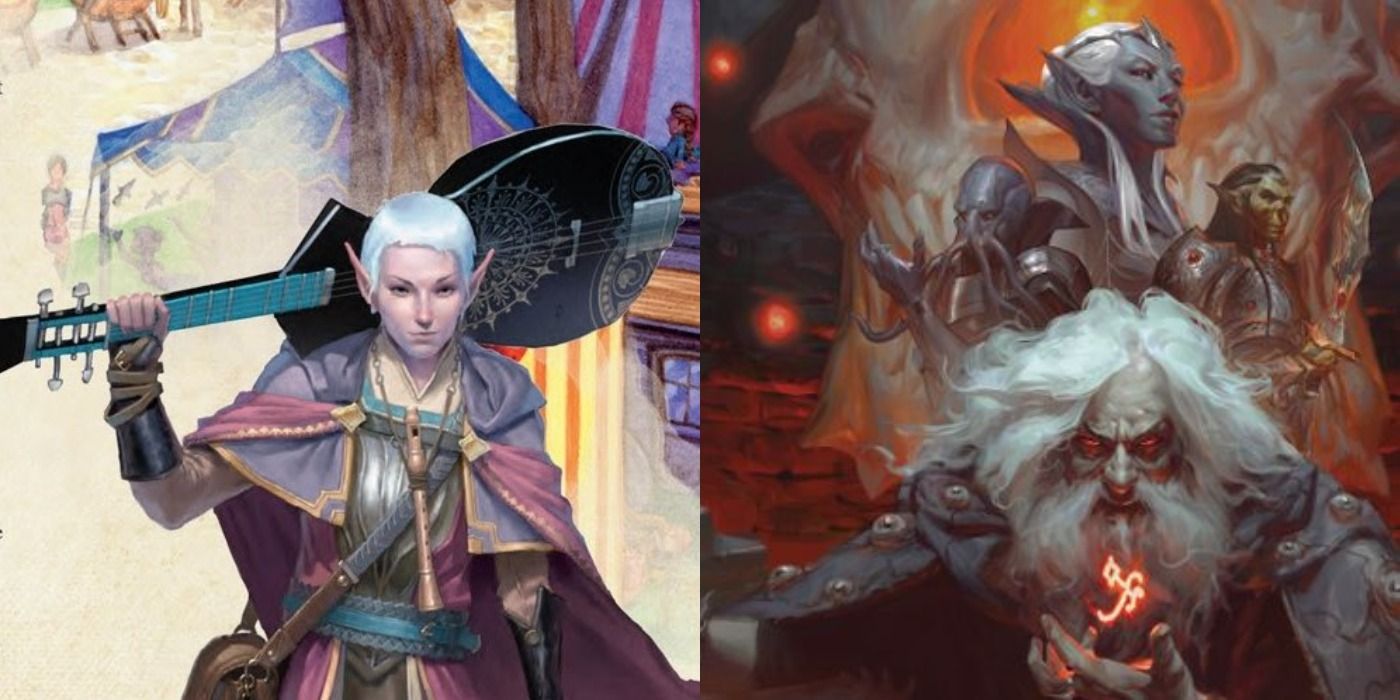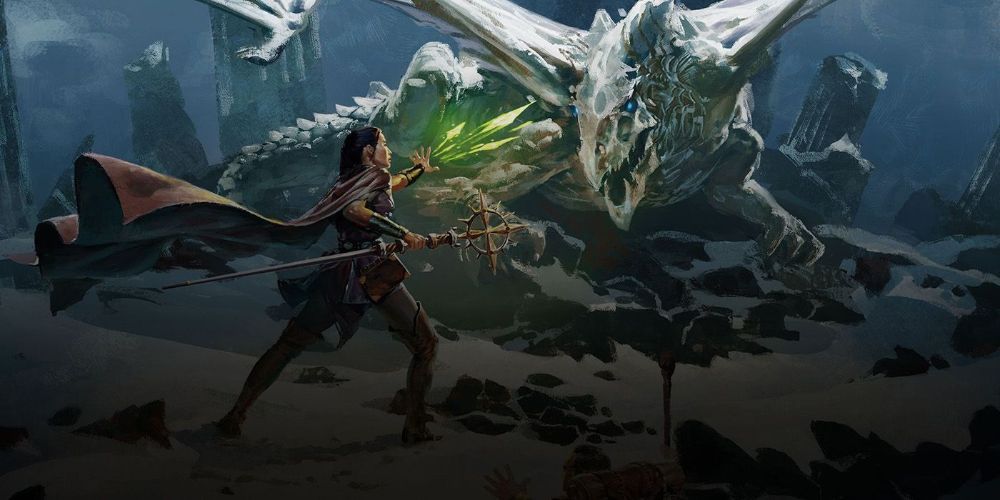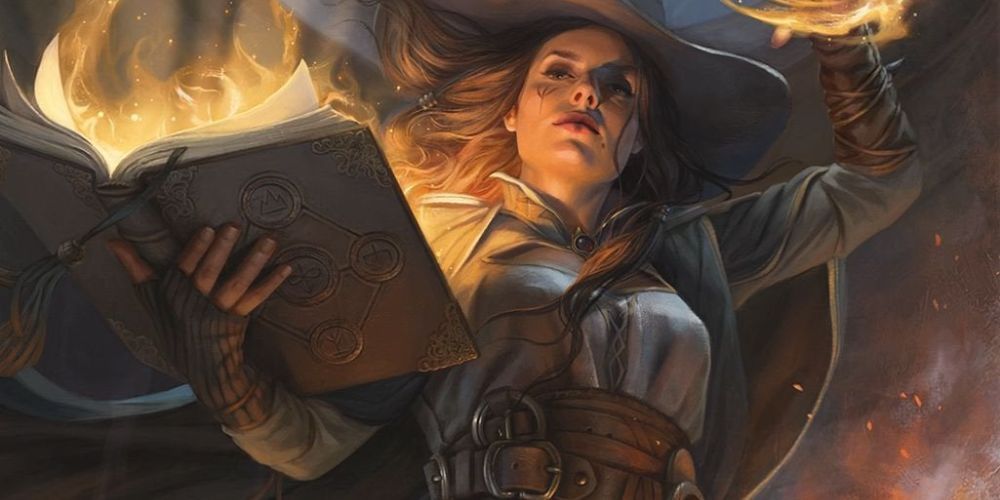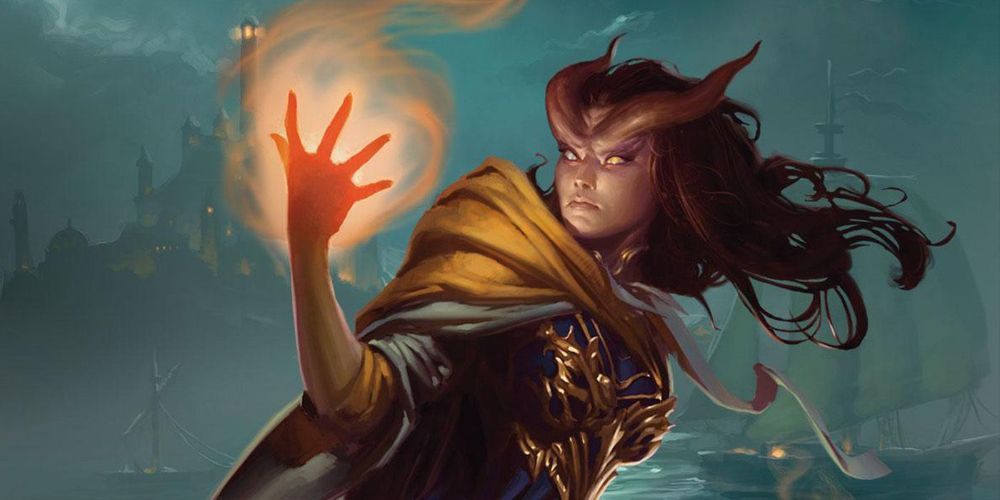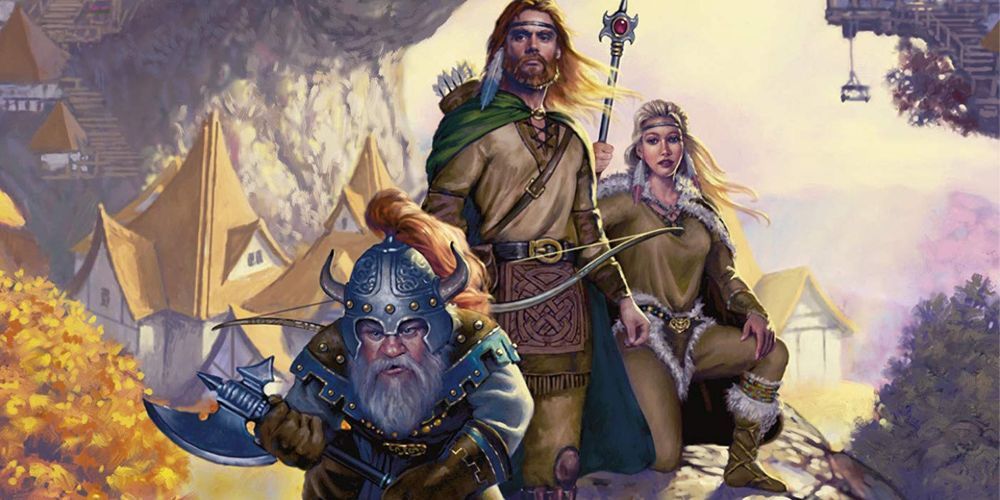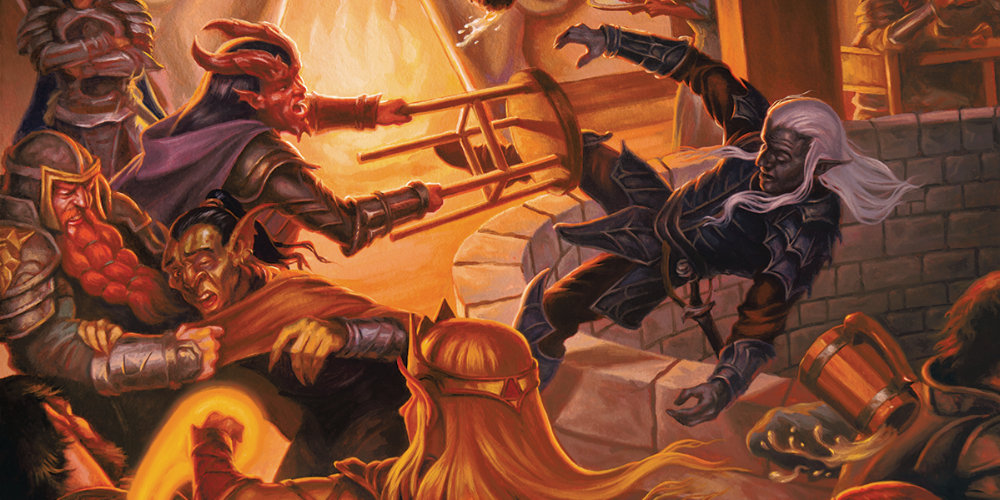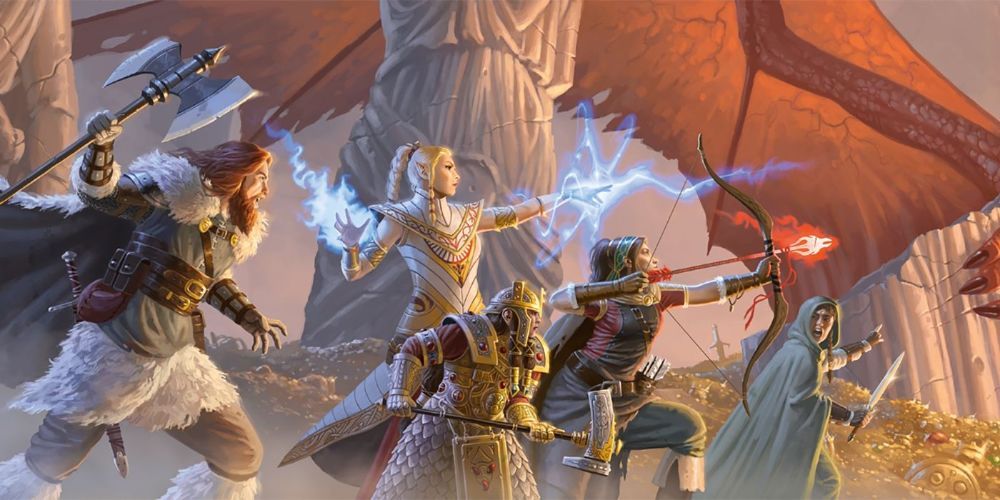When playing Dungeons & Dragons, the Bard class is well-suited for anyone who wants their character to have a flair for music and storytelling; it is a surprisingly underrated caster class considering its versatility. Bards are charismatic spellcasters that often use music as a conduit for their abilities - giving inspiration or making an attack through song.
Based on the subclass a player chooses, certain feats may work better for their bard or their party than others, of course. Each character and campaign is different, but there are some feats that wonderfully compliment the bard class no matter what race, subclass, or special abilities the player chooses to build them with.
Silver-Tongued
If the DM allows Unearthed Arcana in their campaign, the Silver Tongued feat can be a good option for bard's who wish to be particularly crafty. The feat increases a player's Charisma score by 1 and they get proficiency in Deception. If they're already proficient, their proficiency bonus for the ability doubles.
Bards with this feat can also opt to attempt to use charm and deception as their attack during an encounter. As long as the bard beats the other creature's Insight check, they are immune to the creature's opportunity attacks and they have an advantage on attack rolls against the creature until the end of their next turn.
Spell Sniper
Spell Sniper allows a player to learn an additional cantrip for their bard. The cantrip can be from the bard spell list or the spell list of another caster class. This feat is especially helpful if the player chooses a cantrip from another Charisma casting class, such as sorcerer or warlock. Spell sniper allows a bard to gain powerful spells like Eldritch Blast, the signature cantrip of the warlock class, which can do far more damage than Vicious Mockery, the bard's signature cantrip. Spell sniper also doubles the range of a bard's spell being cast on an attack roll and gives the ability to hit anyone with a ranged spell who is not under full cover.
Magic Initiate
This feat, as long as they are already a caster class like bard, gives the player two additional cantrips. They are allowed to pick a casting class, even if it is not their own, and take two cantrips from its spell list. They can also learn an additional level 1 spell from that class's list. This feat can be very helpful for classes such as bards that learn spells as they go and have a limited number they are allowed to know.
The spell casting ability for the cantrips and spells learned corresponds to whatever class they borrowed the spells from. The 1st level spell can only be used once per long rest, but the cantrips function regularly. The Magic Initiate feat can save a player the hassle of having to multiclass in order to gain a few low-level spells they want from another caster class.
Fey Touched
Fey Touched is a helpful feat no matter what class the character is in. One of the most fun aspects of this feat is that the player gains access to the Misty Step spell, which is typically only available to sorcerers, wizards, and warlocks. Misty Step allows the user to short-range teleport as a bonus action. In addition, the player can pick a 1st level Divination or Enchantment spell and increase their Intelligence, Wisdom, or Charisma score. The spells must be cast using the ability that was increased and they can be cast once per long rest without using a spell slot. They can also be cast after that feature is used up by expending a slot at the spell's normal level.
Healer
There can never be too many members in a party with healing abilities. While each party usually has at least one designated "healer," if the healer is taken out of commission or has used up their more powerful spell slots in battle, it is a good idea to have other players with healing spells prepped.
Given the bard class's limited access to healing spells and the few spells they get the opportunity to learn, the Healer feat can be a beneficial way to restore hit points without expending a spell slot or a known spell, as long as the bard has a Healer's Kit. Characters with the Healer feat can roll a d6 to give other players hit points and add 4 to the number rolled, as well as adding additional hit points depending on how many hit dice the healed character has.
Actor
Actor is a good feat for a bard because of its bonuses to a player's Charisma. It also works well if the character's race is a human variant. Players who take this feat get a plus 1 to their Charisma score as well as advantages on certain Deception and Performance checks. It works well with characters in campaigns or parties that emphasize role-playing. It can also make for fun storytelling because the bard has the ability to try to mimic other characters and pass themselves off as different people. Someone trying to see through their charade would have to roll a higher Insight check than the Bard's roll for Deception.
Inspiring Leader
Inspiring Leader is another feat based on high Charisma. Bard's start at 1st level with Bardic Inspiration that they can use as a bonus action to give another member of their party an additional d6 to use in case they roll too low on an attack roll, ability check, or saving throw.
The Inspiring Leader feat allows a bard to encourage six of their party members, or "friendly creatures," with temporary hit points. The amount of hit points depends on the bard's level plus their Charisma modifier.
Tough
Bards are considered to be one of the "squishier" D&D classes; they tend to have lower Armor Classes because of their light armor and potentially low Dexterity modifier. The Tough feat allows players to increase their maximum number of hit points depending on what level they are at. Each level increase, their maximum HP increases by 2 extra hit points in addition to the bard's d8 hit dice and Constitution modifier. With this feat, even if the bard gets hit easier, it is harder to knock them down.
War Caster
The War Caster feat is especially helpful in combat-heavy campaigns. If a DM is particular about how many weapons or shields players are holding when they are trying to cast, the War Caster feat can allow them to cast even while their hands are full.
In addition, players can typically only make a melee attack when another creature leaves their reach. This feat allows the bard to cast a spell as their reaction against the creature as an opportunity attack. It also gives advantage on Constitution saving throws to avoid breaking concentration spells if a character is injured.
Lucky
Regardless of what kind of bard a player chooses to build or what kind of campaign their DM is running, the Lucky feat is an extremely helpful one to take. Some players and Dungeon Masters find this feat to be overpowered, but if allowed to use it, it can be a game changing tool in a bard's repertoire.
The Lucky feat gives a player luck points and allows them to roll an extra d20 when they roll an attack, an ability check, or a saving throw. They can also use it to try and block someone's attack against them by replacing the number the other person rolled with the number they rolled if it is low enough to cause their attack to miss. According to the rules, the player must decide to use their luck before they know the outcome of the first d20 roll. So, there is a chance that the second roll will be unnecessary and the point will be wasted, but it is often worth the risk to add a little extra luck.

